Business
Norway’s Trainwreck – How Taxing Unrealized Gains Has Caused an Entrepreneurial Exodus
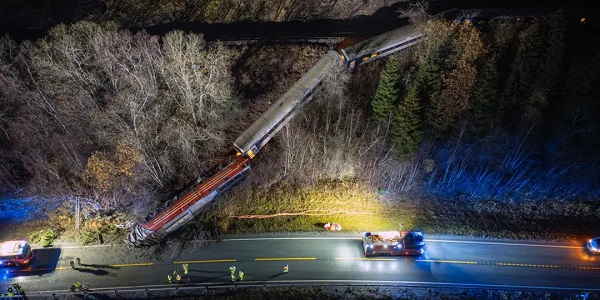
From hagaet the substack of Fredrik Haga, co-founder of Dune
Norway Shrugged
Recently, my story as a Norwegian entrepreneur facing an unrealized gains wealth tax bill many ties higher than my net income went viral, amassing over 100 million views on X. A few years ago I publicly called out that this tax is both impossible-to-pay and nonsensical, but no politician would listen. So I made the difficult decision to leave my home country. I still don’t know how I was supposed to pay the tax, but I recently found myself plastered on the “Wall of Shame” at the Socialist Left Party’s offices.
In this post, I’ll delve into why there’s an entrepreneurial exodus from Norway, how we got here, and what the future might hold.

Socialist Left leader and me on the “Wall of Shame” (Dagbladet)
Norway: A real life Atlas Shrugged
Ayn Rand’s 1957 novel Atlas Shrugged paints a vivid picture of a dystopian society where government overreach and socialist policies kill innovation and demonize entrepreneurs. In Rand’s world, working hard and taking risks is not celebrated, but looked at with suspicion. As the government tightens its grip, mandating how businesses should operate, the nation’s entrepreneurs begin to vanish and are nowhere to be found. People get poorer while the state keeps growing. Step by step the functioning of society starts to crumble. The trains first go off schedule, then start crashing and eventually stop going all together.
Present-day Norway mirrors this dystopia in unsettling ways. Taking risk with your own money, working hard and then making a profit is frowned upon. While politicians spending the people’s money on non-viable green projects, and delivering dysfunctional public services at high costs has the moral high ground. The government is spending 35 Billion NOK on offshore wind that industry experts think is financially unviable. This is about the same amount as the total wealth tax revenues. Norway spends 45% more than Sweden on health care per capita with approximately the same health outcomes. Norway has 2,5 times bigger share of the working population on sick leave than Denmark. Norway spends ~50% more than Finland on primary and secondary school with worse results.
With unshakeable ideological conviction, socialist politicians are rapidly undermining Norway’s wealth creation. They’re imposing taxes that explicitly disadvantage Norwegian business owners, and are often straight up impossible to pay. When confronted with the reality that you can’t pay taxes with money you don’t have—or that loss-making businesses can’t afford massive dividends just to cover owners’ wealth taxes—the response is vague moralism like “Those with the broadest shoulders must bear the heaviest burdens.” Any argument against any part of the system is by default invalid because there’s free health care…
Norway’s entrepreneurs are now indeed disappearing from society. In the past two years alone, a staggering 100 of Norway’s top 400 taxpayers, representing about 50% of that group’s wealth, have fled the country to protect their businesses.
Norwegian trains have for a long time been notoriously unreliable – even less reliable then in war time Ukraine! In chilling similarity to Atlas Shrugged there’ve been two train crashes, including one fatal, in the last month alone.

Tram crashing into a retail store in Oslo 29th of October 2024 (NRK)
The Unrealized Gains Wealth Tax: A Self-Inflicted Wound
Norway imposes a wealth tax that taxes unrealized gains at approximately 1% annually. Calculated on the full market value for publicly traded assets and the book value of private companies. On New Year’s Eve, whatever your net worth – including illiquid assets – is subject to this tax. It doesn’t matter if you’re running a loss-making startup with no cash flow, if your investments have tanked after the valuation date, or even if your company has gone bankrupt—you still owe the tax.
This creates a perverse scenario where business owners must extract dividends or sell shares every year just to cover their tax bill. With dividend and capital gains taxes at around 38%, you need to withdraw approximately 1.6 million NOK to pay a 1 million NOK wealth tax bill. You’re essentially paying taxes to pay taxes, draining capital from your business without any personal financial gain.
Moreover, the tax incentivizes Norwegians to take on excessive debt to reduce their taxable wealth, inflating housing prices and making the economy more fragile. While real estate and oil companies can mitigate this through debt financing, tech startups—often equity-financed and loss-making for years—are disproportionately harmed.
The Berlin Wall Exit Tax: Another Tax on Unrealized Gains
After witnessing a mass exodus of top taxpayers, the Norwegian government had a golden opportunity to reassess its policies. The wealth tax contributes less than 2% to the state budget; eliminating it and marginally increasing capital gains, corporate, or dividend taxes could have halted the entrepreneurial bleeding without affecting government budgets.
Instead, the government doubled down on what’s not working, introducing an exit tax on unrealized gains. Now, if you choose to move from Norway, you’re immediately liable to pay 38% of the total market value of your assets upon departure. It doesn’t matter if you have no liquidity, if your assets are high-risk and could plummet in value, or even if your company does fail after you leave—you still owe the tax. Previously, entrepreneurs could at least relocate if the wealth tax became too burdensome. Now, they’re incentivized to leave before they even start their businesses.
The government could have listened to the tornado of negative feedback and adjusted course, but instead, they doubled down on what’s not working. When the Berlin wall was created it was clear which side of the city had the better system… the one that didn’t have to build a wall to retain its citizens. Instead of trying to attract and retrain capital and talent by making Norway a better place for business the Norwegian government chose to build its very own Berlin Tax Wall with yet another tax on unrealized gains. Trapping not only entrepreneurs, but anyone with more than $270k of wealth wanting to move their life abroad for whatever reason…
The first 50 years: Well Managed Oil Wealth
Norway is one of the richest countries in the world. The government does not need to send their entrepreneurs abroad with non-sensical taxes. So you may ask yourself, “Well, how did we get here?”.
In fact, the oil wealth has been amazingly well managed by the politicians for almost half a century. In 1969, Norway struck oil—a discovery that could have led to the same resource curse that plagued other nations. Instead, Norwegian politicians made two genius decisions that benefited the entire population.
- Genius Move 1: Taxing Oil Profits at 80%Recognizing the need for foreign expertise but unwilling to let international corporations reap all the benefits, Norway taxed oil company profits at a staggering 80%. This bold move ensured that the wealth generated from the oil benefited the Norwegian people.
- Genius Move 2: Establishing the Sovereign Wealth FundIn the 1990s, Norwegian politicians understood that oil is a finite volatile resource and that it would be irresponsible to spend all the oil revenue on a running basis. In an act of rare political austerity and long term thinking they created the Oil Fund, to diversify and invest surplus revenues internationally. Furthermore the “Budgetary Rule” limited annual government spending from the fund to 3%, ensuring the fund in theory goes on forever.
For two decades, politicians across the spectrum adhered to this prudent financial management, displaying an impressive level of restraint and foresight rarely seen in politics.
How Oil Wealth Led to Socialist Ideology over Wealth Creation
But success bred complacency. In theory, everybody agrees that Norway needs new post-oil industries for the long term. In practice, the abundance of oil wealth has led to a detachment from the realities of how wealth and economic growth is created. While the Norwegian politicians impressively managed to restrain themselves for about half a century the current generation are now acting as if tax money grows on trees.
Ultimately that is the paradox that has caused the current situation: because the state has so much money, it is no longer at the mercy of businesses actually being created and staying in Norway. At least as long as the oil wealth lasts.
The 2025 Election: No Fundamental Solution in Sight
It seems likely there will be a new government after the 2025 elections, as the current government is seeing record-low support in the polls. Unfortunately, even seemingly business friendly opposition parties like the Conservative Party (Høyre) and the Liberals (Venstre) are not committed to abolishing the wealth tax entirely. They propose valuing companies zero for wealth tax purposes—a good step in the right direction, but not a fundamental solution to Norway’s ongoing crisis. Unfortunately The Progress Party (Fremskrittspartiet) is the only party that wants to remove the tax completely.
The wealth tax’s mere existence continues to create absurd incentives for excessive debt and over-investment in housing, detracting from more productive investments like stocks and startups. Moreover, the possibility of future governments reinstating the wealth tax for companies keeps the harmful uncertainty for businesses very much alive.
Many European countries have recognized the harm caused by taxing unrealized gains and abandoned it. Norway’s neighbor Sweden abolished its wealth tax in 2007. Since then they’ve seen its tech sector flourish. Spotify recently surpassed Norway’s state-owned oil company, Equinor, in market capitalization. In the last 15 years Norway has gone from having 7 to now only 2 of the Nordics top 30 most valuable companies.
Norway has produced four “unicorns”. Since then we the founders of Dune and Cognite have left due to the unreasonable taxes. Oda operates domestically in Norway. All founders have left the company and are wiped out. The last one Gelato is run by a swede that would likely move if they need to raise more money.
The Extra Long Journey to Post-Oil Wealth and Welfare
In Atlas Shrugged, the entrepreneurs refuse to return to society until the oppressive system collapses entirely. I sincerely hope Norway doesn’t have to endure such a downfall before entrepreneurs can return.
Fortunately Norway has a highly educated population and a lot of capital. With oil a high tech industry has been built in Norway before. What’s lacking is the political will to encourage entrepreneurship and big ambitions, not punish it.
Trust is built in millimeters and torn down in meters. In just a few years, the trust in Norway as a viable place to build and invest has been shattered. A whole generation of entrepreneurs has been lost.
The people of Norway currently enjoy and benefit from a host of generous welfare benefits. High income with short work days, free healthcare, free daycare, free education and beyond. For this to continue in the future Norway needs massive new post-oil industries. Due to the politicians’ series of unforced errors, the journey to get there will be extra long and painful. A definitive abolishment of all taxes on unrealized capital gains is the obvious first step.

Business
Judges are Remaking Constitutional Law, Not Applying it – and Canadians’ Property Rights are Part of the Collateral Damage
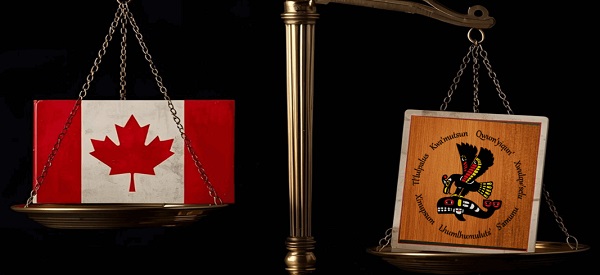
By Peter Best
The worst thing that can happen to a property owner isn’t a flood or a leaky foundation. It’s learning that you don’t own your property – that an Aboriginal band does. This summer’s Cowichan Tribes v. Canada decision presented property owners in Richmond B.C. with exactly that horrible reality, awarding Aboriginal
title to numerous properties, private and governmental, situated within a large portion of Richmond’s Fraser River riverfront area, to Vancouver Island’s
Cowichan Tribes. For more than 150 years, these properties had been owned privately or by the government. The Cowichan Tribes had never permanently lived
there.
But B.C. Supreme Court Justice Barbara Young ruled that because the lands had never been formally surrendered by the Cowichans to the Crown by treaty, (there
were no land-surrender treaties for most of B.C.), the first Crown grants to the first settlers were in effect null and void and thus all subsequent transfers down
the chain of title to the present owners were defective and invalid.
The court ordered negotiations to “reconcile” Cowichan Aboriginal title with the interests of the current owners and governments. The estimated value of the
property and government infrastructure at stake is $100 billion.
This ruling, together with previous Supreme Court of Canada rulings in favour of the concept of Aboriginal title, vapourizes more than 150 years of legitimate
ownership and more broadly, threatens every land title in most of the rest of B.C. and in any other area in Canada not subject to a clear Aboriginal land surrender
treaty.
Behind this decision lies a revolution – one being waged not in the streets but in the courts.
In recent years Canadian judges, inspired and led by the Supreme Court of Canada, have become increasingly activist in favour of Aboriginal rights, in effect
unilaterally amending our constitutional order, without public or legislative input, to invent the “consult and accommodate” obligation, decree Aboriginal title and grant Canadian Aboriginal rights to American Indians. No consideration of the separation of powers doctrine or the national interest has ever been evidenced by
the Court in this regard.
Following the Supreme Court’s lead, Canadian judges have increasingly embraced the rhetoric of Aboriginal activism over restrained, neutral language, thus
sacrificing their need to appear to be impartial at all times.
In the Cowichan case the judge refused to use the constitutional and statutory term “Indian,” calling it harmful, thereby substituting her discretion for that of our
legislatures. She thanked Aboriginal witnesses with the word “Huychq’u”, which she omitted to translate for the benefit of others reading her decision. She didn’t
thank any Crown witnesses.
What seems like courtesy in in fact part of a larger pattern: judges in Aboriginal rights cases appearing to adopt the idiom, symbolism and worldview of the
Aboriginal litigant. From eagle staffs in the courtroom, to required participation in sweat lodge ceremonies, as in the Supreme Court-approved Restoule decision,
Canada’s justice system has drifted from impartial adjudication toward the appearance of ritualized, Aboriginal-cause solidarity.
The pivot began with the Supreme Court’s 1997 Delgamuukw v. British Columbia decision, which first accepted Aboriginal “oral tradition” hearsay evidence. Chief
Justice Lamer candidly asked in effect, “How can Aboriginals otherwise prove their case?” And with that question centuries of evidentiary safeguards intended
to ensure reliability vanished.
In Cowichan Justice Young acknowledged that oral tradition hearsay can be “subjective” and is often “not focused on establishing objective truth”, yet she
based much of her ruling on precisely such “evidence”.
The result: inherently unreliable hearsay elevated to gospel, speculation hardened into Aboriginal title, catastrophe caused to Richmond private and government property owners, the entire land titles systems of Canadian non-treaty areas undermined, and Crown sovereignty, the fount and source of all real property rights generally, further undermined.
Peter Best is a retired lawyer living in Sudbury, Ontario.
The original, full-length version of this article was recently published in C2C Journal.
Business
Trump Blocks UN’s Back Door Carbon Tax


From the Daily Caller News Foundation
Has the time come for America to seriously reassess its participation in and support for the United Nations (U.N.)?
It’s a question that some prominent people are asking this week after the increasingly woke and essentially useless globalist body attempted to sneak a global carbon tax in through the back door while no one was looking.
Except someone was looking, as it turns out. Republican Utah Sen. Mike Lee, who chairs the powerful Senate Energy and Natural Resources Committee and is part of the majority on both the Senate Judiciary and Senate Foreign Relations Committees, said in an X post Thursday evening that this latest bit of anti-American action “warrants our withdrawal from the UN.”
Dear Readers:
As a nonprofit, we are dependent on the generosity of our readers.
Please consider making a small donation of any amount here.
Thank you!
Secretary of State Marco Rubio said in his own X post on the matter on Wednesday that the Trump administration “will not allow the UN to tax American citizens and companies. Under the leadership of POTUS (President Donald Trump), the U.S. will be a hard NO. We call on other nations to stand alongside the United States in defense of our citizens and sovereignty.”
On Friday afternoon, Mr. Rubio took to X again to announce the news that efforts by himself and others in the Trump administration succeeded in killing an effort to move the tax forward during a meeting in London. However, the proposal is not fully dead – a final vote on it was simply delayed for a year.
The issue at hand stems from an attempt by the International Maritime Organization (IMO) – an agency of the U.N. – to impose net-zero rules on fuels used for seaborne shipping operations. The Trump administration estimates the imposition of the new requirements will increase the cost of shipping goods by about 10%, thus creating yet another round of inflation hitting the poorest citizens the hardest thanks to the globalist obsession with the amount of plant food – carbon dioxide – in the atmosphere.
Known as the IMO Net-Zero Framework, the proposal claims it would effectively “zero out” emissions from the shipping industry by 2050.
The potential implications if the U.N. ultimately succeeds in implementing its own global carbon tax are obvious. If this unelected, unaccountable globalist body can levy a carbon tax on Americans, a concept that America’s own elected officials have steadfastly rejected across the terms of the last five U.S. presidents, what would then prevent it from imposing other kinds of taxes on the world to support its ideological goals?
President Trump’s opposition to exactly this kind of international intrusion into America’s domestic policy choices is the reason why he has twice won the presidency, each time de-committing the U.S. from the Paris Climate Accords.
It has become increasingly obvious in recent years that the central goal of the global climate alarm movement is to dramatically raise the cost of all kinds of energy in order to force the masses to live smaller, more restricted lives and make their behavior easier for authoritarian governments to control. This camel’s nose under the tent move by the U.N. to sneak a global carbon tax into reality is just the latest in a long parade of examples that serve as proof points for that thesis.
At some point, U.S. officials must seriously reassess the value proposition in continuing to spend billions of dollars each year supporting and hosting a globalist organization whose every action seems designed to inflict damage on our country and its people. Now would be a good time to do that, in fact.
David Blackmon is an energy writer and consultant based in Texas. He spent 40 years in the oil and gas business, where he specialized in public policy and communications.
-

 Red Deer2 days ago
Red Deer2 days agoThe City of Red Deer’s Financial Troubles: Here Are The Candidates I Am Voting For And Why.
-

 Business1 day ago
Business1 day agoUN, Gates Foundation push for digital ID across 50 nations by 2028
-

 COVID-191 day ago
COVID-191 day agoThe Trials of Liberty: What the Truckers Taught Canada About Power and Protest
-
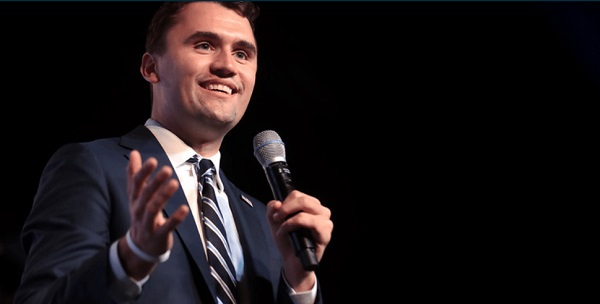
 C2C Journal1 day ago
C2C Journal1 day agoCharlie Kirk and the Fragility of Civic Peace
-
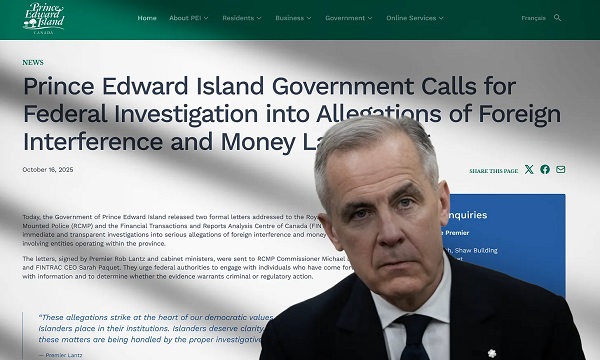
 espionage2 days ago
espionage2 days agoPEI to Ottawa: Investigate CCP Footprints—Now
-
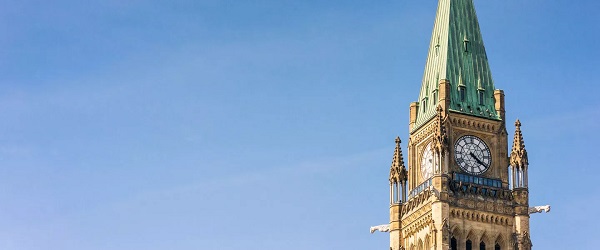
 Business2 days ago
Business2 days agoFederal Budget 2025: A responsible media would ensure Canadians know about the dismal state of federal finance
-

 International1 day ago
International1 day agoPoland’s president signs new zero income tax law for parents with two children
-

 Business2 days ago
Business2 days agoCanada has an energy edge, why won’t Ottawa use it?



